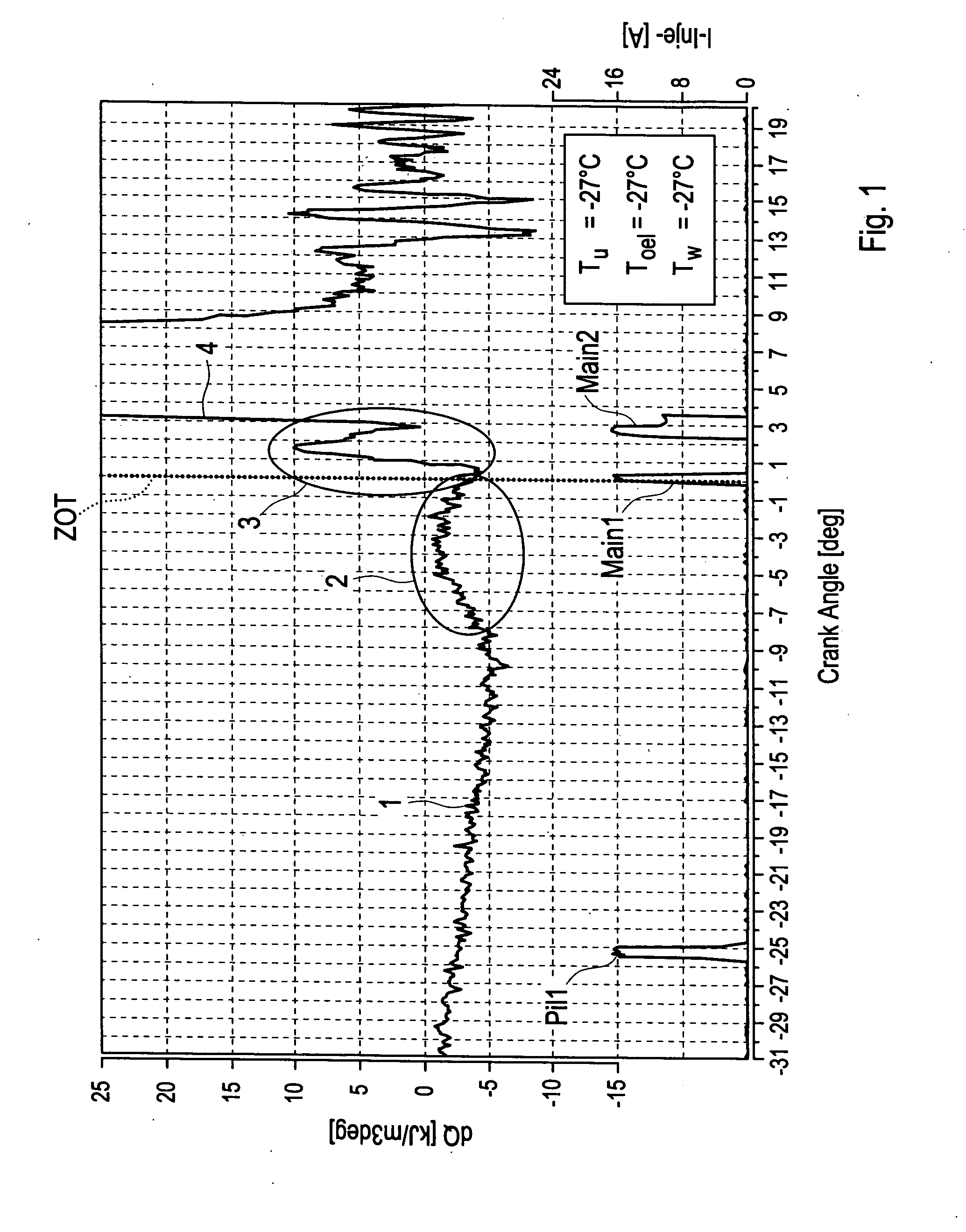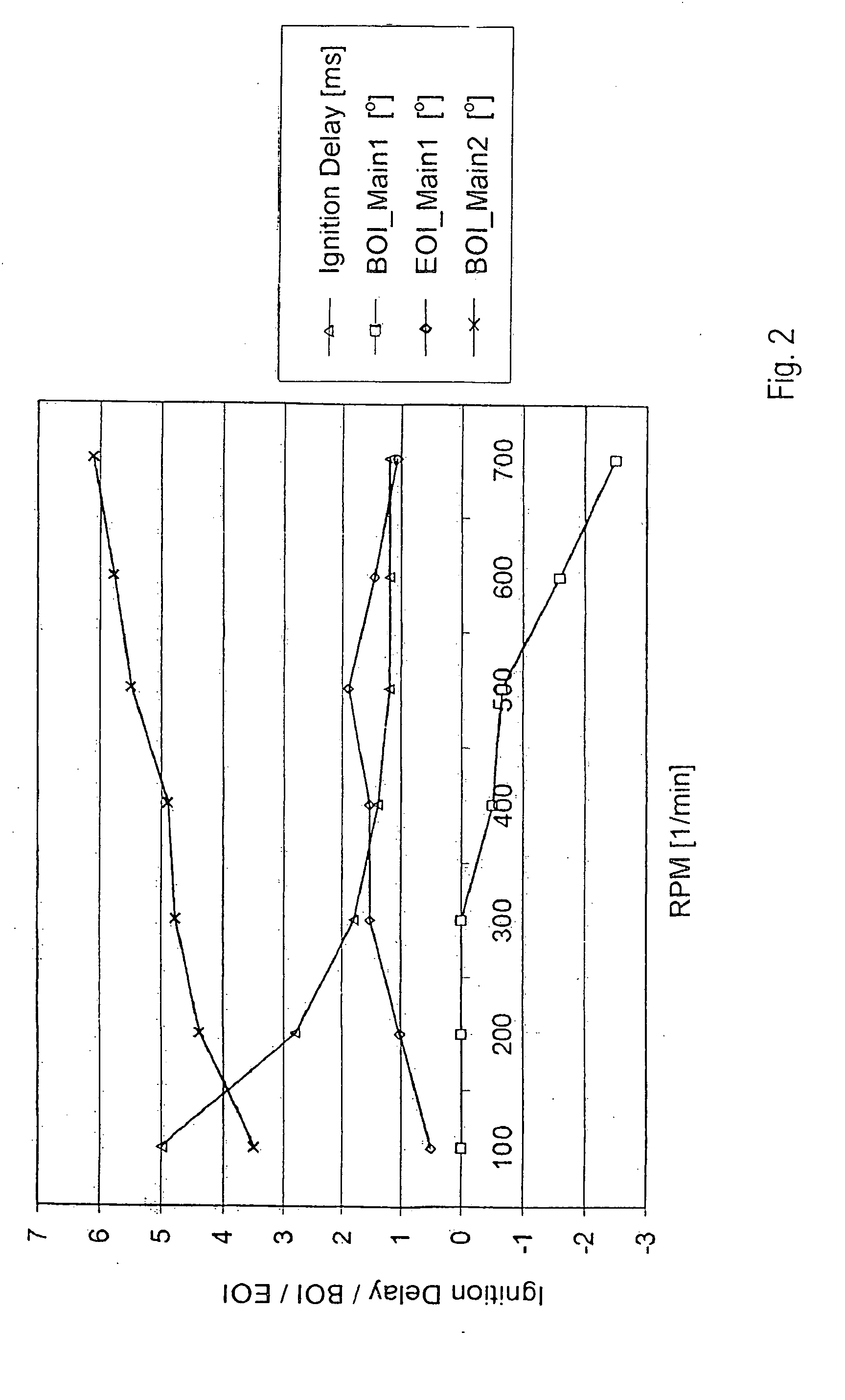Method for starting a self-igniting internal combustion engine at low temperatures
a self-igniting, internal combustion engine technology, applied in combustion engines, machines/engines, electric control, etc., can solve the problem of too low temperature in the combustion chamber for a form in the combustion chamber, and achieve the effect of improving the cold start properties of the internal combustion engine and minimizing the wetness of the combustion chamber wall
- Summary
- Abstract
- Description
- Claims
- Application Information
AI Technical Summary
Benefits of technology
Problems solved by technology
Method used
Image
Examples
Embodiment Construction
[0025]An internal combustion engine not shown in the figures is a Diesel engine with six combustion chambers in this embodiment. The internal combustion engine comprises a common rail fuel injection system, which initiates a time-wise precise injection of a defined fuel amount into the individual combustion chambers possible. The internal combustion engine further includes an angle sensor for measuring a crankshaft angle and a control device, with the help of which the common rail injection system can be controlled in dependence on the measured crankshaft angle and possibly on further several operating variables of the internal combustion engine such as temperature, speed, load requirement.
[0026]During a starting process of the internal combustion engine, a crankshaft of the internal combustion engine is first rotated by means of a starting device. The crankshaft is connected by connecting rods to pistons disposed in the individual cylinders, so that an oscillating stroke movement i...
PUM
 Login to View More
Login to View More Abstract
Description
Claims
Application Information
 Login to View More
Login to View More - R&D
- Intellectual Property
- Life Sciences
- Materials
- Tech Scout
- Unparalleled Data Quality
- Higher Quality Content
- 60% Fewer Hallucinations
Browse by: Latest US Patents, China's latest patents, Technical Efficacy Thesaurus, Application Domain, Technology Topic, Popular Technical Reports.
© 2025 PatSnap. All rights reserved.Legal|Privacy policy|Modern Slavery Act Transparency Statement|Sitemap|About US| Contact US: help@patsnap.com


